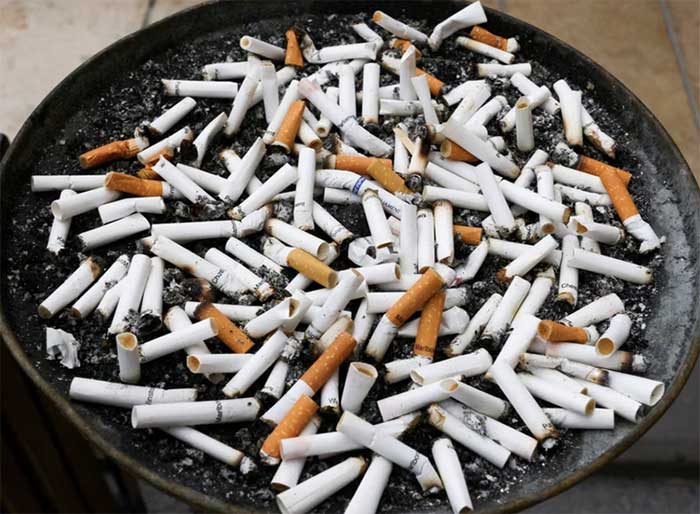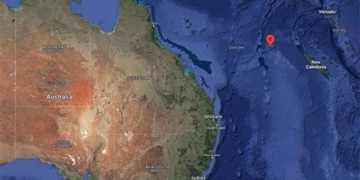A recent study shows that cigarette butts and tobacco packaging cause damage amounting to up to $26 billion annually in waste management costs and negatively impact marine ecosystems.
The South China Morning Post (SCMP) cites research from the Global Tobacco Control Good Governance Center (GGTC) based in Thailand, indicating that the costs of addressing damages from plastic pollution caused by tobacco over a decade are estimated to reach $186 billion (adjusted for inflation).

A cigarette butt in an ashtray in Ankara, Turkey on May 13, 2023. – (Photo: REUTERS).
Deborah Sy, the author of the study, wrote in the journal Tobacco Review on December 4: “Countries are making progress in developing plastic policies, particularly banning single-use products, but the costs of addressing tobacco-related plastic pollution remain overlooked.”
According to the SCMP, cigarette butts are one of the most littered items and the second-largest form of pollution globally. Although cigarette filters are present, numerous studies have shown that they do not reduce the harmful effects of smoking.
Experts also classify cigarette filters as hazardous waste because they contain microplastic fibers and hundreds of other toxic chemicals, including nicotine and heavy metals such as lead, arsenic, and cadmium.
The World Health Organization (WHO) has called on policymakers to consider cigarette filters as single-use plastics and ban them to protect public health and the environment.
“Cigarette butts are not just trash. They are a toxic time bomb for our living environment,” Sy stated.
According to WHO data, China is the largest producer and consumer of tobacco in the world. The country has over 300 million smokers—nearly one-third of the global total. More than 1 million people in China die each year, or about 3,000 deaths daily, due to tobacco-related diseases such as cancer, lung disease, and heart disease.
WHO also reported that the country of over a billion people spends approximately $2.6 billion annually to clean up tobacco waste. Sy estimates that China accounts for about 20% of the global costs for addressing tobacco-related plastic pollution, as data on the quantity of commercially available cigarettes with plastic filters in China remains incomplete.


















































